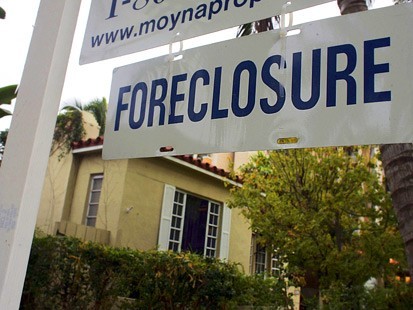If a lender has contacted you about forfeiting rights to your property, you may have questions about South Carolina foreclosures. A skilled real estate attorney can answer your questions and help you navigate the foreclosure process. Whether you want to avoid foreclosure or come out on the other side in a positive situation, we can help. Call our experienced South Carolina Foreclosure Attorney at Steadman Law Firm today at 843-442-8670.
What Is Foreclosure?
A foreclosure often occurs when a homeowner fails to make mortgage payments or voluntarily abandons a mortgage. The home then reverts to bank or lender ownership. There are two types of foreclosure – judicial and non-judicial. Judicial foreclosure involves the lender suing the borrower for possession of the house. Non-judicial foreclosure does not involve the court, and instead simply requires the lender to give the homeowner notice of default before selling the property.
Are South Carolina Foreclosures Judicial or Non-Judicial?
South Carolina is a judicial foreclosure state. A lender must sue a homeowner and prove in court that they have the entitlement to foreclose on a house. This involves conducting discovery (obtaining evidence to support arguments), raising defenses (making an argument against foreclosure), and possibly counter-suing the lender. During a judicial foreclosure, you will have the opportunity to challenge the lender’s allegations and seek a mortgage modification instead of a foreclosure. Call our skilled South Carolina Foreclosure attorney to handle your foreclosure issues.
How Long Does Foreclosure Take?
South Carolina foreclosures can take a significant amount of time. If you do not challenge the lender’s allegations, then the process may take four to six months. However, if you decide to fight back in court, the discovery process, hearings, and negotiations could take years. You should have a skilled South Carolina foreclosure lawyer on your side throughout this process.
What Is a Deficiency?
When a lender sells a house that has been foreclosed upon, they may not obtain the total amount of money remaining due in the mortgage. The difference between the amount obtained in the sale of the house and the mortgage is a deficiency. For example, if a homeowner owes $150,000 on their mortgage, but the foreclosed home only sells for $100,000, there is a $50,000 deficiency. The original borrower may be responsible for a deficiency, even if they no longer own the home. However, as much as 80 percent of the time lenders waive the deficiency.
What Are Appraisal Rights?
If a lender demands the deficiency from the original borrower, the borrower may demand an appraisal of the home. If the home is worth more than it sold for at the foreclosure sale, then the deficiency amount may be reduced. For example, if the original borrower owed $200,000 on the mortgage, but the home only sold for $180,000, there would be a $20,000 deficiency. However, if the home is later appraised for $190,000, then the deficiency would be reduced to $10,000.
Why Lenders May Waive the Deficiency
Lenders often waive the deficiency amount to avoid delays in the process of reselling the house. In most cases, lenders rarely collect deficiencies in South Carolina foreclosures. However, if they do decide to collect on a deficiency, it can add additional steps to the foreclosure process. Bidding on the house at the foreclosure sale must be held open an additional period of time, and additional appraisals may be required.
A South Carolina Foreclosures Attorney Can Help You
South Carolina foreclosures can be intimidating. You may have worries about losing your home. An experienced attorney can help you seek a mortgage modification or work to avoid collection of any deficiency. If you have questions about South Carolina foreclosures, call Steadman Law Firm today at 843-442-8670.






